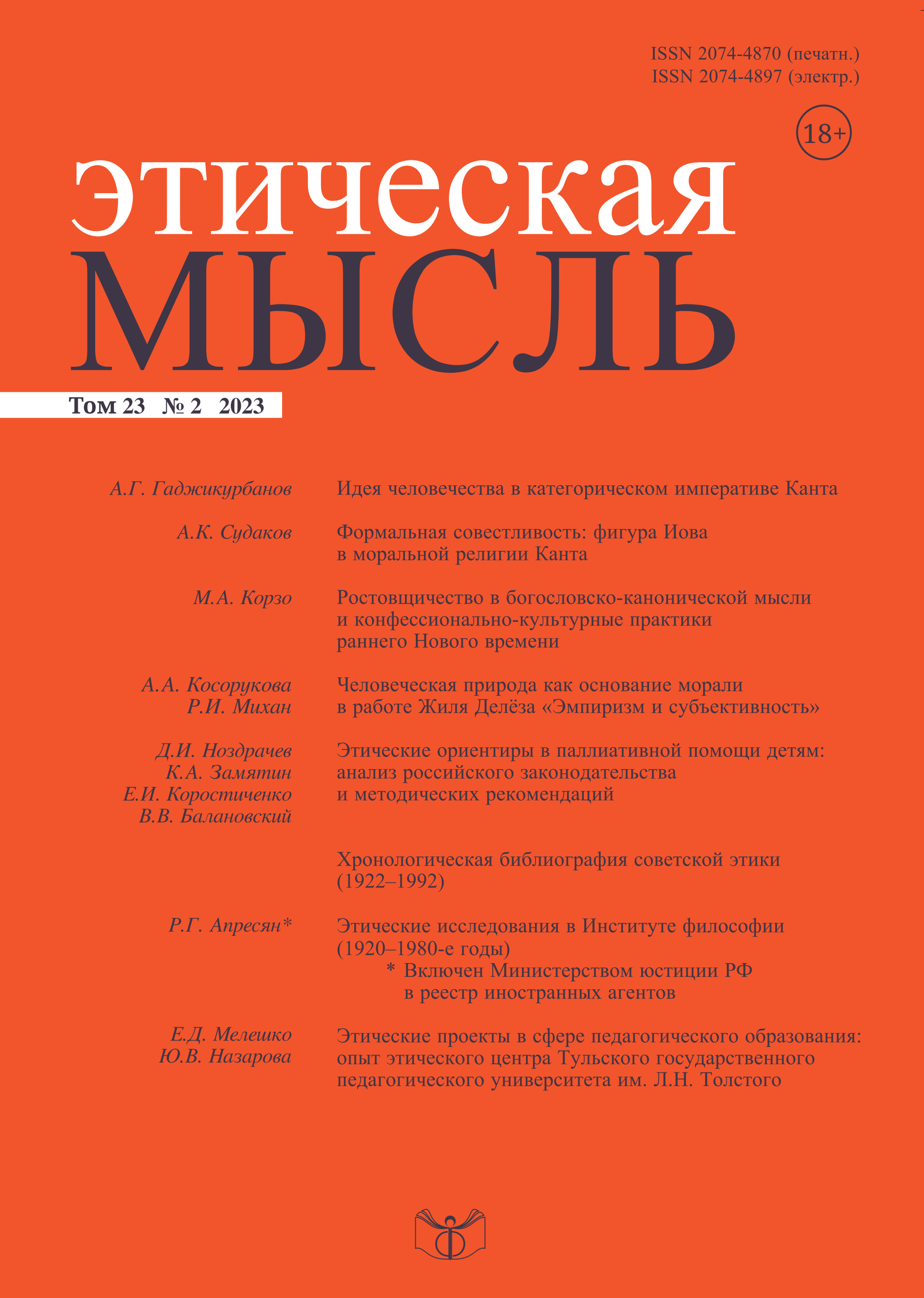Apressyan. Ethical Studies at the Institute of Philosophy (1920s–1980s)
DOI:
https://doi.org/10.21146/2074-4870-2023-23-2-131-155Keywords:
Institute of Philosophy, Soviet Academy of Sciences, Department of Ethics, doctrinal dogmatism and theoretical reliability, the criterion of theoretical maturity of ethicsAbstract
The article presents through an analytical description of the main stages, directions, key events and figures of ethical studies at the Institute of Philosophy. The review begins with a portrayal to the scientific attitudes and expectations of the Institute of Scientific Philosophy (ISPh). Due to the extremely unfavorable political situation, they were not implemented, but their reconstruction is interesting for understanding the research potential that the ISPh had had before its leading fellows were expelled from the Soviet Russia. Left alone with themselves in the ISPh, Marxist philosophers soon involved in acute ideological squabbles, which in fact left no room for philosophy in the true sense of the word. After the debates of the late 1920s – early 1930s, the Institute of Philosophy of the Soviet Academy of Sciences (IPhAN) returned to ethical problematique only twenty years later. The article presents some episodes of the early history of ethical studies in IPhAN, which have long remained in oblivion. The article recognizes that theoretically significant in the development of ethics in the IPhAN, as well as in the Soviet ethics in general, was everything that contributed to its dedogmatization and the development of theoretical reliability, which was ultimately set up by the internal compatibility of basic definitions, namely: of the essence of morality, its functionality and structure. The vicissitudes of the process of growth of the theoretical level of ethics are shown on the material of the discussion about the possible universality of moral demands. This process did not acquire a comprehensive character for the Soviet ethics, but what was achieved marked a cardinal turn in ethical theory and became key in its forty-year dynamics of the second half of the 20th century.









